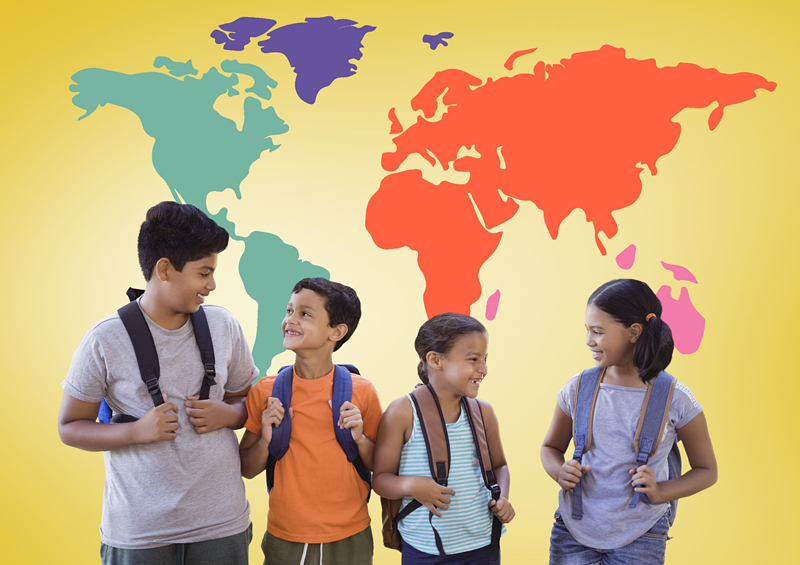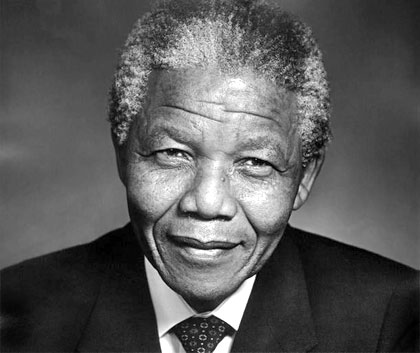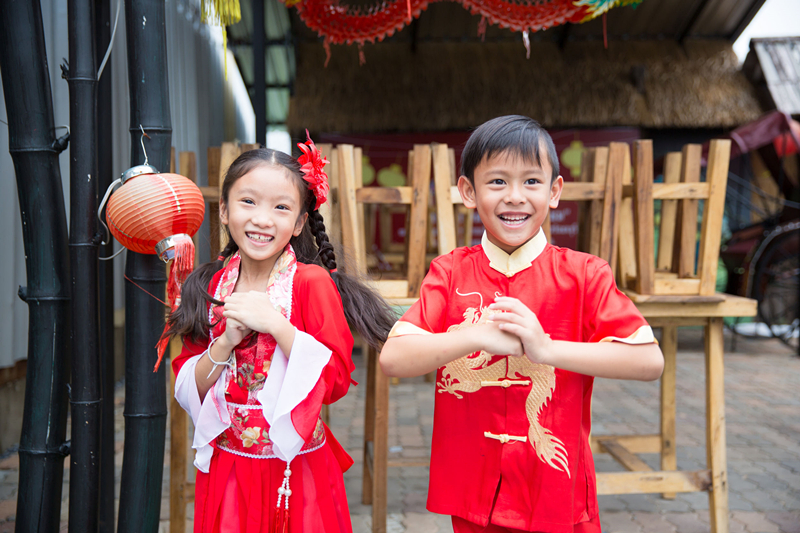What Does Being a Global Citizen Mean to Children Worldwide Today?
I have been thinking for a long time about this definition and what it means for a kid to be a global citizen. The answer seems quite unclear since young children don’t have to face complicated or urgent humanitarian issues happening around the world. They are too young to have even started to think about their future, much less working abroad.
So what’s the significance for a kid to be a global citizen at such a young age? To figure this out, we have to first stand in their shoes. What are they facing now? What is the society they are living in like today?

Although the internet and technology have made modern life unprecedentedly convenient, there are tendencies among certain people to embrace concepts like isolationism, protectionism, and populist. Something that has taken hold recently and can be seen in many world leading countries.
The young generation is likely to be influenced by these trends as they are still learning and are easily susceptible to being influenced by information.
That’s why beliefs and ideas established in one’s early day could have profound influences in later life.
Making sure that the young generation grows up with an open and tolerant view of the world, is critical to the future world. In this sense, it’s never too young to be a global citizen. This is important, especially for countries where their citizens are from diversified cultural backgrounds.
Talking about diversity, the group most shaped by globalization is immigrant children, especially those from minority ethnic groups. For those children, they might face an identity crisis, making it hard to integrate into society.

In a word, the openness and broadened horizon of global citizens would be beneficial to today’s kids.
Our next question would be how to be a global citizen at a young age?
No doubt that knowing and learning the differences and diversity of the world is an important foundation of being a global citizen. Languages, the most important communication tool for human beings, act as the critical bridge to connect people from different cultures.

Here I’ll have to quote Mandela,
“If you talk to a man in a language he understands, that goes to his head. If you talk to him in his language that goes to his heart.“
The premise of a real communication with someone from another country is you talk using their languages.
Then here comes another question, what language should a child pick up? There are plenty of choices. And it’s not a bad idea to start with something relatively easy. However, it would also be beneficial to pick a challenging language like Mandarin Chinese as the culture behind it can broaden children’s horizons. Click here to know the education system of China!
A Global citizen with know-how in Chinese culture
The benefits are obvious: you can’t get a target culture or language more different than the child’s first language as Mandarin Chinese. Therefore, as children learn it, they gain more wisdom from the target culture.

On the other hand, Mandarin Chinese has gradually become another lingua franca as it is spoken by more and more of the population worldwide and used in many important occasions.
In return, this not only helps kids to be more culture-sensitive and cross-cultural but also guide them to think differently, be more tolerant and communicative even in their day to day life.
Traditionally, Chinese people believe the theory that man is an integral part of nature. Their ancestors sought to live in harmony with others and nature, rather than expanding and exploiting. This holistic worldview is now suggested as a universal remedy to confrontations that have left human beings with so many painful memories in past conflicts. In everyday life, this oriental philosophy could help kids to get along not only with their new Chinese friends but also any new people they come across in life.

Being a global citizen also means the ability to understand and appreciate the deeper aspects of a culture. Take Confucius’ thought as an example, it is quite profound for even an educated Chinese to fully grasp, but it would be added as part of the worldview of a young child, so they can think from different perspectives. When they grow up, this seed of thought will also sprout and grow, mixed with all the other thoughts they have learned.
This probably has been one of the many reasons why Mandarin Chinese has become increasingly popular as a second language. And this is also what Lingo Bus believes, to empower kids globally with Chinese language and culture.
Lingo Bus: To empower kids around the world with the Chinese language
Launched on Aug. 23 last year, Lingo Bus has turned one recently. It is made up of professional Chinese teachers, curriculum experts and programming specialists. They share two things in common: the love of children and passion for education.
As a sister brand of VIPkid, the world largest online English education for kids, Lingo Bus is dedicated to empowering kids around the world with Chinese language. They believe bilingual- and multilingualism is a must for the future generation in this increasingly diversified, connected globe.
In the past year, Lingo Bus has got more than 10 thousand registered users and students from more than 73 countries.
With an online classroom platform, students can take live 25-minutes 1-on-1 classes with a PC, laptop or even an IPAD. Online education has bridged the physical distance between teachers and students and at the same time allowed kids and parents to take full advantages of wasted time to learn.
While some new students of Lingo Bus are feeling amazed at how cool it has been to talk with a real Chinese teacher from China in their home, many more experienced students choose to enjoy their freedom of taking classes anytime and where. With classes happening on trains, in cars, and even in Disney land!
On its 1 year birthday, they have launched an online Chinese language class for Chinese heritage children, to help them to keep learning Chinese.
As many Chinese immigrants’ children or American born Chinese kids are having difficulty in finding good Chinese classes. The Chinese heritage is closer to the Chinese literacy class for elementary school children in China. It is aimed to help those who can speak Mandarin but can’t read nor write. This is prevalent among immigrant kids as their family speak the language but don’t have access to language training where they can learn how to write.

Back to the beginning of this piece, immigrants are to some extent a representation of global citizens. But many of them, especially children, are facing an identity problem in their new country. By learning a language, like Chinese for Chinese immigrant kids, they would be more able to understand and adapt to the new environment because they will start to realize that the world is so diversified and they don’t need to worry about being different from others.
After all, that is what being a global citizen is about.
Sign Up for the Fun of Learning Chinese
Copyright Notice: Everyone is welcome to forward the articles in this blog as long as the links to these articles are also included.

